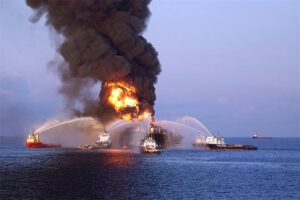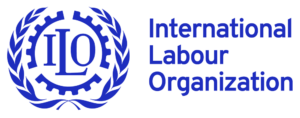Risk Assessment
Risk Assessment is a systematic process used by financial institutions and businesses to identify, evaluate, and prioritize the risks associated with money laundering, terrorist financing, and other illicit activities.
 Written by Erling Andersen
Written by Erling Andersen
Definition: Risk assessment refers to the process of evaluating and analyzing potential risks and their impact on an organization’s operations. Also financial stability, reputation, and compliance obligations. It is a fundamental component of risk management and is employed by businesses and regulatory bodies to identify. Also prioritize, and mitigate risks effectively.
Risk assessments involves the systematic examination of internal and external factors that may pose risks to an organization. By assessing these risks, organizations can develop strategies and implement controls to reduce or eliminate their impact! making informed decisions to protect their interests and ensure long-term sustainability.
Now that we have defined risk assessments, let’s explore its historical view.
Historical View
Throughout history, risk assessment has played a vital role in various industries and sectors. The concept of evaluating risks and taking precautionary measures can be traced back to ancient civilizations. For example, seafarers in ancient times would assess weather conditions and other factors before embarking on long voyages to minimize the risk of shipwrecks.
In the modern era, risk assessments gained prominence with the evolution of industrialization and globalization. The growth of complex and interconnected systems in sectors such as finance. Also healthcare, and technology necessitated a structured approach to identify and manage risks.
The field of risk management has witnessed significant advancements over the years. Regulatory frameworks and standards, such as the Basel Accords for banking institutions and ISO 31000 for risk management, have emerged to provide guidance and promote best practices in risk assessments.
Now, let’s delve into practical examples to understand how risk assessments are applied in various industries.
Practical Examples
Risk Assessment is applicable across industries and sectors, each with its unique risks and challenges. Here are ten practical examples of risk assessments:
- A financial institution conducting risk assessments to identify vulnerabilities in its cybersecurity infrastructure.
- A pharmaceutical company assessing the potential risks associated with a new drug’s side effects and ensuring regulatory compliance.
- An oil and gas company evaluating the environmental risks and impact of a drilling project.
- A construction company conducting risk assessments to identify safety hazards on a construction site.
- A healthcare organization assessing the risks associated with patient data privacy and implementing measures to protect sensitive information.
“Risk Assessment is the key to success in any endeavor.” – Peter Drucker
- An airline performing risk assessments to ensure flight safety and mitigate risks related to maintenance, crew training, and adverse weather conditions.
- A manufacturing company assessing supply chain risks, such as disruptions in raw material availability or supplier reliability.
- A retail business conducting risk assessments to identify potential hazards in its stores, such as slip-and-fall accidents.
- An agricultural enterprise assessing risks related to weather conditions. Also crop diseases, and market volatility.
- A regulatory body conducting risk assessments to identify potential financial crimes, such as money laundering or terrorist financing.
These examples illustrate the diverse applications of risk assessments across different sectors. Also highlighting the importance of understanding and managing risks to ensure business continuity and compliance.
Let’s now delve into statistics related to risk assessments to gain further insights into its significance.
Statistics
Statistics and relevant data provide valuable insights into the significance of risk assessments. Here are ten statistics that shed light on the importance of risk- assessment:
- According to a survey conducted by PwC, 47% of businesses consider risk assessments as a top priority for their organizations.
- A report by the Association of Certified Fraud Examiners (ACFE) found that organizations with anti-fraud controls, including risk assessments, experienced 52% lower median losses due to fraud.
- The World Economic Forum’s Global Risks Report 2021 identified infectious diseases, cybersecurity breaches, and climate change as top global risks that require robust risk assessments and management.
- In a study by the Ponemon Institute, the average cost of a data breach in 2020 was $3.86 million, highlighting the financial impact of inadequate risk assessments and data security measures.
- According to a report by the US Department of Labor, businesses that prioritize workplace safety through risk assessments and preventive measures experienced a 52% reduction in injury and illness rates.
“The first step in risk management is understanding and acknowledging the risks.” – Mark Hopkins
- A study by Deloitte found that organizations with mature risk assessments processes were more likely to achieve higher financial performance and shareholder value.
- The Financial Stability Report by the Federal Reserve highlighted the importance of risk assessments in the banking sector to ensure financial stability and resilience against economic shocks.
- In a survey conducted by EY, 64% of executives stated that the pandemic highlighted the need for better risk assessments and scenario planning to address unexpected risks and uncertainties.
- The Global Terrorism Database reported that risk assessments and intelligence sharing played crucial roles in preventing numerous terrorist attacks worldwide.
- According to the International Labour Organization (ILO), inadequate risk assessments and safety measures contribute to approximately 2.3 million work-related deaths each year.
These statistics underline the critical role of risk assessments in protecting organizations, mitigating financial losses, ensuring safety, and addressing global challenges.
Let’s now explore incidents that emphasize the importance of effective risk assessment.

Incidents
Incidents and events serve as reminders of the consequences of inadequate risk assessments. Here are ten incidents that highlight the importance of effective risk assessment:
- The Deepwater Horizon oil spill in 2010 resulted in a massive environmental disaster due to inadequate risk assessment and preventive measures.
- The Equifax data breach in 2017 exposed sensitive personal information of millions of individuals due to cybersecurity vulnerabilities that could have been identified through robust risk assessment.
- The collapse of the Rana Plaza garment factory in Bangladesh in 2013, resulting in the loss of over 1,100 lives, highlighted the need for thorough risk assessments and safety standards in the supply chain.
- The Volkswagen emissions scandal in 2015 demonstrated the consequences of manipulating emission test results, revealing the importance of transparent risk assessments and regulatory compliance.
“Taking risks is the price of progress. But they must be calculated risks.” – Charles F. Kettering
- The financial crisis of 2008, triggered by risky lending practices and inadequate risk assessments in the housing market, led to a global economic downturn and emphasized the need for effective risk management in the financial sector.
- The WannaCry ransomware attack in 2017 affected hundreds of thousands of computers worldwide, showcasing the impact of insufficient risk assessments and cybersecurity measures.
- The collapse of Lehman Brothers in 2008 due to excessive risk-taking and inadequate risk assessments had far-reaching consequences on the global financial system.
- The BP Texas City refinery explosion in 2005 resulted in multiple fatalities and injuries, emphasizing the importance of risk assessments in ensuring workplace safety.
- The failure of the Mars Climate Orbiter in 1999, which resulted in the loss of the spacecraft, was attributed to a mismatch in measurement units during risk assessments and communication.
- The Enron scandal in 2001 revealed fraudulent accounting practices and inadequate risk assessment, leading to one of the largest corporate bankruptcies in history.
These incidents serve as cautionary tales, emphasizing the crucial role of risk assessment in preventing catastrophic events, protecting stakeholders, and upholding ethical standards.
Now, let’s discuss the future of risk assessments and its role in shaping organizations and industries.
The Future
The future of risk assessment holds both challenges and opportunities for organizations seeking to navigate an increasingly complex and interconnected world. Here are ten key aspects to consider:
- Advancements in technology, such as artificial intelligence and machine learning. It will revolutionize risk assessment by enabling more sophisticated data analysis and predictive capabilities.
- The evolving regulatory landscape will require organizations to adapt their risk assessment practices to comply with changing compliance obligations and industry standards.
- The integration of environmental. Also social, and governance (ESG) factors into risk assessments will become increasingly important as organizations strive for sustainable and responsible practices.
- Globalization and geopolitical risks will require organizations to adopt a broader view of risk assessment to account for political. Also economic, and social factors across borders.
- Data privacy and cybersecurity risks will continue to be significant concerns, necessitating robust risk assessment frameworks to protect sensitive information and mitigate cyber threats.
“Risk assessment is the foundation of sound decision making.” – Robert S. Kaplan
- The emergence of new risks, such as climate change-related events and pandemics, will require organizations to enhance their risk assessment capabilities to address these evolving challenges.
- Collaboration and information sharing among organizations and industries will play a crucial role in enhancing risk assessment practices and mitigating shared risks.
- Emphasis on proactive risk assessment and preventive measures will reduce the likelihood and impact of incidents, safeguarding organizations from reputational damage and financial losses.
- The role of risk assessment in corporate governance and board-level decision-making will continue to gain importance as organizations recognize its strategic value.
- The adoption of advanced analytics and risk assessment tools, such as Kyros AML Data Suite, will empower organizations to streamline their risk assessment processes and make data-driven decisions.
The future of risk assessment holds immense potential for organizations to proactively manage risks. Also seize opportunities, and ensure long-term sustainability in a rapidly changing world.
Now, let’s explore how Kyros AML Data Suite can enhance risk assessment processes and compliance efforts.
Explore the Power of Kyros AML Data Suite
Kyros AML Data Suite is a cutting-edge AML compliance software that empowers organizations with advanced tools. Also capabilities to streamline their risk assessment processes and strengthen their compliance efforts.
With Kyros AML Data Suite, organizations can:
- Automate the collection, aggregation, and analysis of data from multiple sources to facilitate comprehensive risk assessment.
- Utilize advanced algorithms and machine learning to identify patterns, anomalies, and potential risks within vast volumes of data.
- Generate insightful reports and visualizations that enable stakeholders to make informed decisions based on risk assessment findings.
- Stay up-to-date with evolving regulations and industry standards through real-time updates and alerts within the software.
“With Kyros AML Data Suite, businesses can streamline their AML processes and ensure regulatory compliance with ease.” – Compliance Professional
- Enhance collaboration and information sharing among teams involved in risk assessment and compliance efforts.
- Improve efficiency and productivity by reducing manual tasks and leveraging automation in risk assessment processes.
- Ensure data privacy and security through robust encryption and access controls within the Kyros AML Data Suite platform.
- Integrate seamlessly with existing systems and technologies to enhance the overall risk management ecosystem.
“The power of Kyros AML Data Suite lies in its ability to integrate seamlessly with existing systems, simplifying the compliance landscape.” – IT Specialist
- Access a dedicated support team and ongoing training to maximize the value of Kyros AML Data Suite for risk assessment and compliance needs.
- Benefit from continuous innovation and updates as Kyros AML Data Suite evolves to address emerging challenges and industry requirements.
By leveraging the power of Kyros AML Data Suite, organizations can optimize their risk assessment processes. Also enhance compliance efforts, and navigate the complex landscape of regulatory requirements with confidence.
Conclusion
Risk assessment plays a crucial role in identifying, evaluating, and mitigating potential risks that organizations face. It is a proactive approach that enables businesses to make informed decisions. Also protect their interests, and ensure long-term sustainability. From historical perspectives to practical examples. Also statistics, incidents, and the future outlook, risk assessment continues to evolve and gain prominence in a rapidly changing world.
With the power of advanced technologies like Kyros AML Data Suite, organizations can enhance their risk assessment processes and compliance efforts, empowering them to navigate regulatory landscapes and make data-driven decisions with confidence. The future of risk assessment holds immense potential for organizations to embrace proactive risk management. Also seize opportunities, and thrive in an ever-evolving business environment.
Explore the power of Kyros AML Data Suite today and embark on a journey towards robust risk assessment and comprehensive compliance.
Related Article
Share article on


